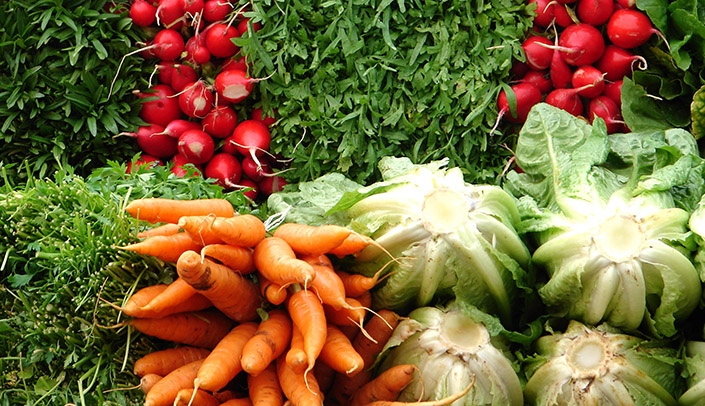Last week, we shared with you the benefits of eating more fruits and vegetables, buying locally grown produce and getting involved with a community garden. If you have the space and the desire, growing a garden in your backyard is great. It’s also good for your physical and mental health.
Gardening is not a “plant and leave” activity. It requires care and attention to grow what you want and to do so in a healthy, safe way. When deciding what to plant and when to plant it, Cornell University has a great resource on the proper place to plant different vegetables or flowers, plant traits and special considerations.
The Omaha Library in Benson has a seed library — seeds you can check out to grow (you return seeds in the fall), as well as community resources, book recommendations and other gardening resources.
A way to get your vegetable garden started is to build out the “square foot garden.” This method plots your garden by each square foot. Plants are properly spaced, it’s easy to water, and you can fit the largest amount of plants in the space. Use this resource to help with proper soil, if you’re filling a bed.
If you think you need a fertilizer, try compost. It reduces landfill waste, is better for your soil and plants, and is safe to handle. You can compost at home or buy compost. Want to learn more? LiveGreen is hosting a 30-minute webinar on composting on Wednesday, June 17 at 11 a.m.
If you have to use a fertilizer, know that large amounts of chemicals are bad for the plants and soil. The Organic Material Review Institute (OMRI) has a safe product list. This is an unregulated industry, so be cautious and do research. A package that says “organic” does not mean it is safe.
Insects and weeds are a fact of life. Weeds can be pulled (part of the health benefit!). Insecticides will kill everything, including the pollinators the plants need, and potentially the birds that eat those bugs. It’s best to let nature do its thing and know that you may lose a few leaves or some produce in the process, but you and the ecosystem will be better off.
If you do have to buy a pesti/fungi/herbicide, there are some chemicals you should avoid, like DDT, Glyphosate and Atrazine. See other chemicals to avoid.
